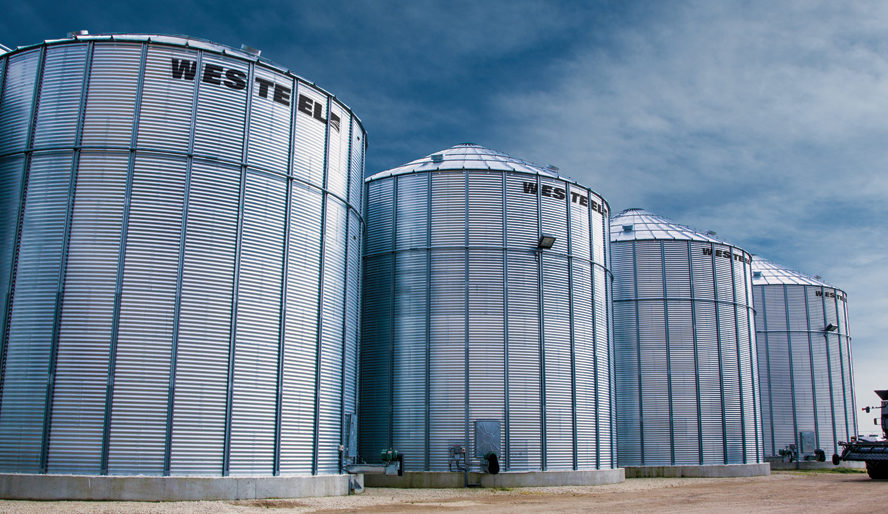WINNIPEG, MANITOBA, CANADA — Ag Growth international (AGI) suffered a drop in EBITDA for the first quarter ended March 31 due to production, supply chain and delivery inefficiencies caused by the coronavirus (COVID-19) and the impact of lower commercial sales.
The company posted adjusted EBITDA of C$25.6 million, which compared with C$30.6 million in the same quarter a year ago. Sales in the quarter increased C$12.7 million, or 6%, compared with the first quarter of 2019 due to strong farm sales in the United States and the acquisition of Milltec in India.
“The tail end of our first quarter was impacted by the COVID crisis, however Q1 results were resilient after accounting for the COVID impact and the weighting of our backlog toward the second half of 2020,” said Tim Close, president and chief executive officer of AGI. “Following temporary production interruptions in our international locations and a number of short disruptions in the US, all operations are currently in production. COVID will have an impact on our second quarter and the remainder of the year due to production suspensions and supply chain and delivery disruptions, as well as the impact COVID may have on our customers, but backlogs and new order intake remain solid allowing us to mitigate the impact in the second quarter and into the second half of the year. There has been outstanding work done by the AGI team to respond to the COVID crisis. This work has enabled us to continue to operate, to minimize production disruption and minimize the impact on our business. In North America, the essential services declaration granted us the right to work, however the actions of the AGI team allowed us to operate safely, responsibly and to retain the confidence of all team members.”
The emergence of COVID-19 is having an adverse impact on AGI’s business, including the disruption of production, its supply chain and product delivery. The extent, duration and ultimate impact of COVID-19 and governmental and societal responses thereto is unknown, and accordingly management is unable to provide specific guidance on its impact on AGI.
To date, AGI said it has experienced temporary production suspensions in Italy, France, Brazil, India and the United States. Engineering, design and quoting activity continued at all of these businesses during the suspension periods and all plants have resumed production.
Although AGI’s business is being substantially impacted by the COVID-19 related disruptions, management believes that post crisis demand will be positively impacted as the world builds additional redundancy into the global food infrastructure to account for similar events in the future.
International production suspensions due to COVID-19 lasted between two and four weeks and impacted part of the first quarter and into the second quarter. Manufacturing activity resumed after the suspensions were lifted at different points in April, and AGI is currently manufacturing at 50% to 80% capacity at these locations.
In the United States, internal safety protocols required AGI to temporarily suspend production on several occasions in the second quarter, and these plant closings have generally lasted three to 10 days. To date, there have been no production suspensions in Canada.
Prior to the COVID-19 crisis, management expected adjusted EBITDA in the second quarter to fall slightly below the record results of second quarter of 2019, for 2020 adjusted EBITDA to be weighted to the second half and for annual growth in fiscal 2020 over 2019. Early in the second quarter, with all production facilities currently operating, and a backlog that is 9% over this point in 2019, AGI expects the COVID-19 impact to be significant but relatively contained assuming no additional extended lockdowns are required. The impact on the second half remains subject to COVID-19 impacts on its markets and customers.
In the United States, Commercial Grain handling activity has been stable but for the last number of years has been restrained by depressed agricultural markets and international trade disputes. In addition, the emergence of COVID-19 has delayed decisions with respect to capital deployment. Nonetheless, largely due to higher backlogs of Fertilizer and Food projects, AGI’s sales order backlog is 27% higher than the relatively low backlog of a year ago.
In Canada, the Commercial market was very active over the last several years due to increased investment in grain infrastructure, however the Canadian Commercial backlog has decreased compared to the high levels of a year ago.
Global trade uncertainties in 2019 created an environment of uncertainty that lasted through much of the year. Capital projects were largely put on hold as customers paused to assess what facilities they needed by geography to account for the changes in trade flows. This pause in spending started to impact sales intake in the first quarter of 2019 and persisted until the fourth quarter. The late pickup in project activity in 2019 impacted the timing of the backlog once it did pick up, pushing project deliveries out to the back half of 2020.
The increased pace of new order intake experienced in the fourth quarter of 2019 continued in 2020 and in the first four months of 2020 new international orders, excluding Milltec (acquired March 29, 2019) increased 21% compared to the prior year.
As a result of increased new orders in late 2019 and year-to-date in 2020, the international sales order backlog at April 30, 2020, excluding Milltec, is 42% higher compared to the same time in 2019. Backlog increases are most significant in EMEA, Southeast Asia (excluding India) and Brazil.
Follow our breaking news coverage of the coronavirus/COVID-19 situation.






